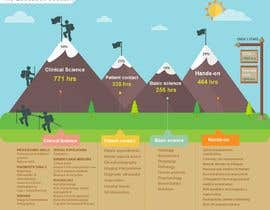Do Chiropractic Care Adjustments Produce Dependency? Clarifying Fact From False Impression
Do Chiropractic Care Adjustments Produce Dependency? Clarifying Fact From False Impression
Blog Article
Composed By- lower back pain medical procedure could have listened to that chiropractic care modifications can result in an addictive dependence, but that's a typical misunderstanding. Many patients discover relief without developing any type of dependency. It is necessary to understand real objective of these modifications and exactly how they fit into your overall health and wellness method. So, what exactly does the science claim regarding chiropractic treatment and your well-being? Allow's discover the facts.
Comprehending Chiropractic Care Adjustments and Their Objective
When you consider chiropractic care adjustments, it's vital to recognize their function and exactly how they work. These changes intend to deal with imbalances in your back and joints, promoting far better alignment and activity. By applying regulated force to specific areas, chiropractic practitioners assist reduce pain, boost function, and improve your general wellness.
Chiropractic treatment concentrates on your body's capacity to heal itself, highlighting the link in between the spinal column and the nerve system. When navigate to this site is straightened, it can lower nerve interference, enabling your body to operate ideally.
Normal modifications may also assist avoid future problems, maintaining you energetic and pain-free. Inevitably, chiropractic adjustments offer to sustain your health, improve mobility, and boost your lifestyle.
Common Myths Concerning Addiction and Chiropractic Care Care
Many people hold false impressions about the relationship in between chiropractic treatment and dependency therapy. One usual myth is that chiropractic care adjustments create an addiction-like dependence. In reality, lots of patients discover relief from pain and discomfort, however this doesn't suggest they create a mental or physical dependency.
One more misconception is that chiropractic specialists are simply attempting to maintain you coming back for even more changes. The majority of chiropractics physician prioritize your well-being and go for lasting health and wellness as opposed to regular check outs.
In addition, some think chiropractic care can change conventional dependency therapies, but it ought to complement, not substitute, evidence-based therapies. Recognizing these myths can assist you make notified selections about your health and health without falling target to misinformation.
The Scientific Research Behind Chiropractic Care Adjustments and Person Experience
While some may examine the efficacy of chiropractic care adjustments, an expanding body of research study sustains their duty in minimizing pain and boosting overall function.
Researches show that spine control can lower pain from conditions like reduced neck and back pain, tension frustrations, and neck pain. When you go through chiropractic care, the changes aim to recover correct positioning, boosting your body's natural recovery capabilities.
Many patients report boosted flexibility and a better sense of wellness after treatment. In addition, the healing partnership you construct with your chiropractic physician can improve your experience, as they offer personalized treatment customized to your demands.
This combination of scientific support and positive client experiences aids clear up why chiropractic care adjustments work for many individuals looking for relief.
Conclusion
Finally, chiropractic care changes aren't addicting; they're made to enhance your wellness and promote aggressive health care. By debunking the myths bordering reliance, it's clear that these treatments can offer substantial relief without producing a cycle of addiction. Embracing chiropractic treatment as a complementary approach to typical therapies can bring about better wellness results. So, if you're taking into consideration adjustments, rest assured that they have to do with boosting your quality of life, not developing a dependence.
